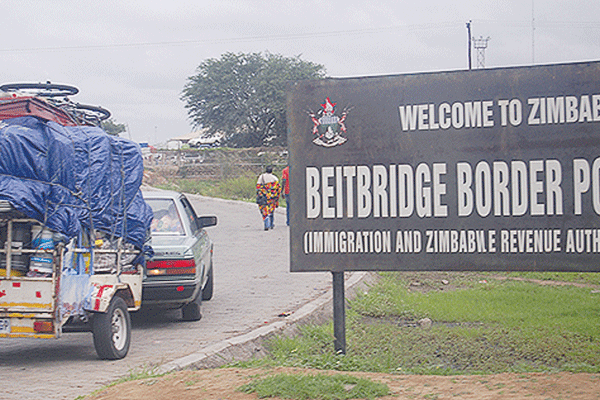
BY REX MPHISA
CROSS-BORDER transporters known as omalayitsha yesterday blocked Beitbridge Border Post after they were refused entry into Zimbabwe from South Africa, which opened its borders on Monday.
Zimbabwe is yet to open its border and has extended its lockdown by a further two weeks.
The cross-border transporters were cleared on the South African side, but were sent back by the Zimbabwean officials, who stated that the Zimbabwean side of the border was still closed. When they returned to the South African border, the transporters were refused entry and remain stuck at the border.
In anger, they camped at the bridge near the Zimbabwean border and blocked all traffic from the two countries.
Immigration officials distanced themselves from the issue saying it was the responsibility of the Zimbabwe Revenue Authority’s Customs and Excise Department to deal with it.
“They had passports and we processed them, but our counterparts would not allow them,” a South Africa immigration official who refused to be named said.
The dissonant opening of the Beitbridge Border Post by the two countries is not a new phenomenon. On October 1 last year, similar chaos happened when the South African side was opened before Zimbabwe opened its side.
- Chamisa under fire over US$120K donation
- Mavhunga puts DeMbare into Chibuku quarterfinals
- Pension funds bet on Cabora Bassa oilfields
- Councils defy govt fire tender directive
Keep Reading
Later, the affected cross-border traders were re-admitted into South Africa after negotiations by the two countries which involved border officials, the police and the army.











